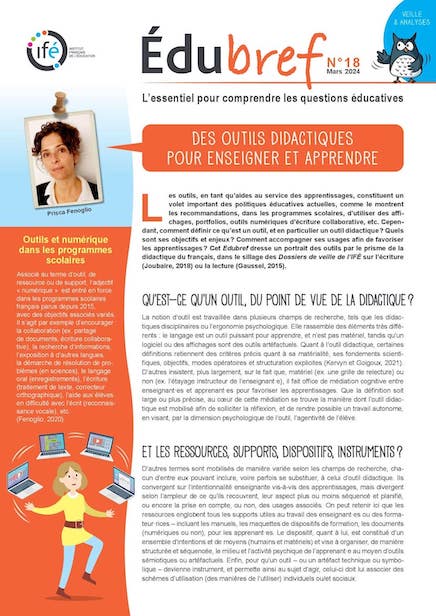Langue(s) : anglais
Editeur(s) : Eurydice
Date : 02/2016
Developing and promoting entrepreneurship education has been one of the key policy objectives of the EU institutions and Member States for many years. Indeed, in the context of high youth unemployment, economic crises and rapid changes related to our complex knowledge-based economy and society, transversal skills such as entrepreneurship are essential not only to shape the mindsets of young people, but also to provide the skills, knowledge and attitudes that are central to developing an entrepreneurial culture in Europe. However, although some countries have already been committed to fostering entrepreneurship education for more than a decade, others are just starting.
Following the 2012 Eurydice report on entrepreneurship education, this new analysis captures the latest developments in Europe. It provides updated and more detailed information on strategies, curricula and learning outcomes, and also covers new themes such as funding schemes and teacher education.
The report focuses on primary education, lower and general upper secondary education as well as school-based initial vocational education and training. It contains information for 2014/15 from 33 countries participating in the Eurydice network. In addition, national information sheets provide an overview of entrepreneurship education in each country.
Contents:
Chapter 1: Definitions and Context of Entrepreneurship Education
Chapter 2: Strategies and Funding Schemes
Chapter 3: School Curriculum
Chapter 4: Teacher Education and Support
Chapter 5: State of Entrepreneurship Education in Four Key Areas
Voir aussi le résumé des principaux résultats (pdf, 4 pages).
(pdf, 238 pages)
Télécharger le document : https://webgate.ec.europa.eu/.../195EN.pdf
mot(s) clé(s) : comparaison internationale, compétences
Entrepreneurship Education at School in Europe
Editeur(s) : Eurydice
Date : 02/2016
Developing and promoting entrepreneurship education has been one of the key policy objectives of the EU institutions and Member States for many years. Indeed, in the context of high youth unemployment, economic crises and rapid changes related to our complex knowledge-based economy and society, transversal skills such as entrepreneurship are essential not only to shape the mindsets of young people, but also to provide the skills, knowledge and attitudes that are central to developing an entrepreneurial culture in Europe. However, although some countries have already been committed to fostering entrepreneurship education for more than a decade, others are just starting.
Following the 2012 Eurydice report on entrepreneurship education, this new analysis captures the latest developments in Europe. It provides updated and more detailed information on strategies, curricula and learning outcomes, and also covers new themes such as funding schemes and teacher education.
The report focuses on primary education, lower and general upper secondary education as well as school-based initial vocational education and training. It contains information for 2014/15 from 33 countries participating in the Eurydice network. In addition, national information sheets provide an overview of entrepreneurship education in each country.
Contents:
Chapter 1: Definitions and Context of Entrepreneurship Education
Chapter 2: Strategies and Funding Schemes
Chapter 3: School Curriculum
Chapter 4: Teacher Education and Support
Chapter 5: State of Entrepreneurship Education in Four Key Areas
Voir aussi le résumé des principaux résultats (pdf, 4 pages).
(pdf, 238 pages)
Télécharger le document : https://webgate.ec.europa.eu/.../195EN.pdf
mot(s) clé(s) : comparaison internationale, compétences














